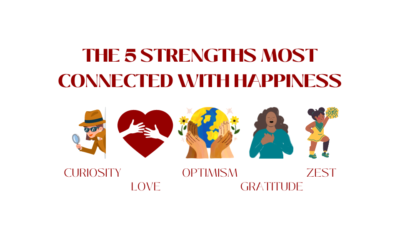Have you self-sabotaged recently?
We can say any number of things to ourselves… that we are going to start that diet, cut back on alcohol, spend more time being uncomfortable, or be a less judging individual, for example. In the haze of stress, self-criticism, doubt, and restlessness, it can be difficult to pinpoint where exactly these feelings come from.
Shirzad Chamine – the founder of Positive Intelligence – conducted a research study composed of 500,000 people and discovered that there are 10 primary negative response factors that get in the way of happiness and optimal performance. He refers to these negative responses as the “saboteurs”, which are the ten ways our negative self-talk and maladaptive behavior can wreck results.
The Ten Saboteurs
Putting a name to some of the negative feelings we experience throughout the day can maximize performance, because happiness and productivity seem to be linked. Research in neuroscience and positive psychology confirm this hypothesis. The first step is being aware of what we experience, and we all have the “master saboteur” in common: the judge.
The Judge never lets you forget your mistakes or shortcomings and prevents you from relaxing if there is some future risk to worry about. The judge wants you and others to be a certain way and loves to fixate on what is wrong, instead of what is right. This saboteur gives the other 9 fuel to add to the fire and can cause much of your stress and unhappiness. If left unchecked, the judge can harm your performance, achievements, and relationships by fixating on the faults of yourself and others.
The Avoider would rather focus on the positive and pleasant aspects of life and sweep everything else under the rug. By avoiding difficult people, feelings, situations, and thoughts, you may find some short-term relief… but the long-term effects of avoidance can build resentment towards self and others. The avoider shies away from conflict and perceived discomfort and will go to extreme lengths to avoid difficult or unpleasant tasks.
The Controller stems from an anxiety-based need to take charge and control situations to feel at ease. It wants others to act in accordance with your own will and perceived “right”. The controller can be impatient and lack the compassion that is so necessary for health relationships. When semblance of control is not an option, it can feed the judge.
The Hyper-Rational focuses solely on the rational processing of everything, which can be especially problematic in relationships. A person with this negative response factor can be perceived as unfeeling, uncaring, or intellectually arrogant.
The Hyper-Achiever focuses solely on the level of performance and achievement that one experiences. This validation and respect from an external source can be detrimental, as achievements are quickly disregarded in pursuit of the next goal.
The Hyper-Vigilant experiences powerful anxiety regarding the perceived threats and danger of everyday life and is hyper-focused on everything that could hypothetically go wrong. This trait can also push a person to avoid creative expression and risk-taking, as they are worried about making mistakes.
The Pleaser is always helping, pleasing, rescuing, or flattering others as a means for affection and acceptance. As a result, the pleaser’s own needs are forsaken and resentments towards others start to build.
The Restless is always looking for the next big thing or big adventurer. The key words here are “bigger, better, and more”. The restless feels the best when busy and may find the present moment extremely difficult to enjoy. The restless always juggles plans and ideas, and often fails to execute them.
The Stickler exhibits perfectionism in more ways than one and takes goes to great lengths to maintain order and organization. Since “perfect” is never truly attainable, this trait can cause a person to feel anxiety as a result of things not being “just right”.
The Victim gains attention and affection by being emotional and temperamental. They place an extreme emphasis on internal feelings… especially painful ones. They sacrifice their own self-interests and exhibit a “woe is me” story to garner attention and sympathy from others.
Avoiding The Saboteurs
Everybody can fall victim to multiple saboteurs a day. Having the right tools in place can make the difference between a good day and a horrible day.
How would your life be different if you had the tools to recognize your own saboteurs and harness a positive response factor instead of a negative one?
I would love to hear your thoughts and help provide you with the tools to help defeat your saboteurs.
Take the quiz at https://assessment.positiveintelligence.com/saboteur/overview





Recent Comments